Graham Reid | | 4 min read

Some people just don't get it, do they? Wouldn't you love to meet those gearing up to pay an expected $4.5 million at on-line auction for the piano on which John Lennon wrote Imagine?
Imagine no possessions, huh?
Of course, the Famous White Piano will command top dollar because Imagine was recently voted the best song ever written or something, and in Britain was used to welcome the new century.
And the reissue of 1971's Imagine -- not to be confused with Imagine: Music from the Motion Picture -- coincides with the Gimme Some Truth film of the making of the album available as an extended DVD edition. And you could expect even greater interest in Lennon come December and the 20th anniversary of his murder.
Time to invest in some Lennon product -- like a Famous White Piano? -- methinks. Or maybe just listen again to the Phil Spector-Lennon-produced Imagine album, now digitally remastered and remixed.
The album has already been released on CD but this version -- with an expanded booklet of lyrics and photos -- improves songs such as the lyrically lame I Don't Wanna be a Soldier which now pans eerily between the speakers.
Between the sentimental title track and the cheery if limp paean to the missus, Oh Yoko, which closes the album, was one of Lennon's nastiest and best songs, How Do You Sleep?, in which he takes broad swipes at Paul McCartney: "The sound you make is Muzak to my ears, you must have learned something in all those years." 
It's like overhearing a bitter divorce argument and the album also came with a postcard of Lennon holding a pig, in a parody of McCartney holding a sheep on his Ram album released some months before.
All this petty sniping, of course, was widely excused by Lennonites as indicative of the man's very human failings. Lennon snickeringly later wrote the song and postcard off as a schoolboy jape.
That said, anyone who has heard the vicious outtakes -- glimpsed briefly in the doco-movie -- and his disparaging vaginal reference to McCartney would find it hard to believe this was a man of peace.
Think globally, act vindictively, I guess.
While this might make Lennon an icon with feet of clay, we're back to that old problem of admiring the art but being less enamoured of the artist.
And the art of Imagine is very good: Jealous Guy remains a gorgeous, heartfelt ballad which reintroduced whistling into rock ("that Roger Whittaker moment," as a colleague witticised). Crippled Inside is little more than a jolly knees-up over ragtime piano and George Harrison's slippery slide guitar but, as Paul Du Noyer pointed out, while it goes nowhere it gets there with considerable charm. And although Gimme Some Truth is dated in its references ("no mother lovin' son of tricky dicky") it remains an effective rocking rant.
Songs such as Oh My Love, co-written with Ono, and the self-doubt of How? possess a deliberately naive melodicism which is captivating.
So, was Imagine Lennon's best solo album? Not at all. 
The emotionally raw and soul-scouring John Lennon/Plastic Ono Band of the previous year, where he announced, "I don't believe in Beatles," is by far the better and more significant.
But Imagine was certainly the last fully satisfying Lennon album, although it wasn't up against much competition.
Sometime in New York City, from 1972, was a sprawling double album, on which he abandoned Britain and his pacifist position for New York and militant sloganeering. Ironically, his idea of being a rock activist and journalist in song, to get to "the people," made for his lowest-selling album.
Mind Games (1973) offered a few excellent songs but much treading of water. Walls and Bridges (1974) was equally unfocused. The song Steel and Glass off it was a rewrite of How Do You Sleep?, this time aimed at former manager Allen Klein.
And, as one heartless wag tastelessly observed, anyone who releases an album as bad as Double Fantasy ('80) deserves to be shot.
So yes, Imagine, even after almost 20 years, is a fine album and the single is a great song. Inspiring and a classic in fact.
But as a political philosophy?
Imagine no possessions, no religion, no Hell below us, above us only sky, people living for today ...
Yes, it's a nice sentiment -- but Pol Pot and his henchmen tried it.
Didn't seem to work, actually.

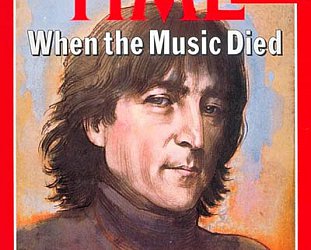
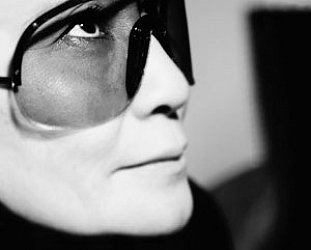
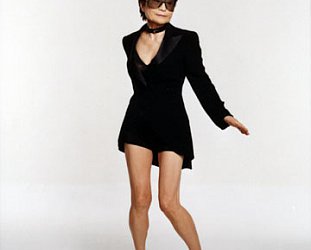

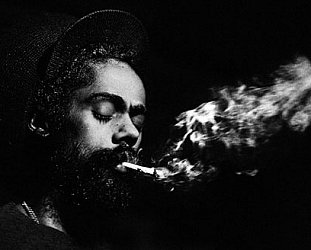
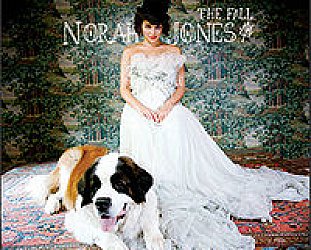
post a comment